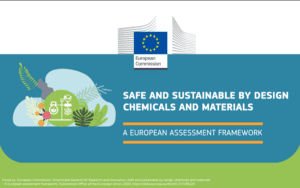Skills in the eyes of European Institutions
“Skill” is an elusive term due to its wide applicability. Therefore, the EU takes a transactional stance on how to look at the concept of skills, by adjusting the initiatives supporting skill developments to its priorities. The European Skills Agenda specifies digital skills, crisis resilience, and importantly, sustainability as key skill areas – while highlighting that these skills should be equally accessible for all. The policy tools to ensure the availability of these skills are manifold. Amongst others, they build on promoting the benefits of acquiring relevant skills, incentivising educational institutions, encouraging partnerships, and supporting skill transitions as well as lifelong learning. In practice, this means funding opportunities, restructuring proposals for vocational programmes, strengthening collaboration between universities within the context of the European Universities initiative, and promoting the connections between skills and long term goals by events such as the upcoming “Zero Pollution & the European Year of Skills“ talk – but this list is by no means exhaustive. The year of skills is also embraced by the European Research Executive Agency.
Emerging skills for those already skilled
Many members of the European Chemistry Community – and, on a larger scale, the academic community – have already spent many years acquiring skills. However, one of the key aspect of skills is their transformative nature. Developments on relevant fields – with regards to the discipline of chemistry, most notably sustainability – can call for opening up to new perspectives based on existing knowledge, or for the procurement of entirely new skill sets. The chemistry community’s approach towards sustainable chemistry – represented by actors such as the International Sustainable Chemistry Collaborative Centre, the EuChemS Division of Green and Sustainable Chemistry or the GDCh’s “Nachhaltige Chemie”, just to list a select few – illustrates that students of this discipline do not shy away from adapting and learning new skills alongside the practising of existing ones. However, such openings may benefit from also considering relevant policy avenues, to successfully utilise and proliferate newfound green chemistry skills amongst the wider society.
This was the key message from EuChemS, at the meeting of the High Level Roundtable on the implementation of the Chemicals Strategy, upon discussing the fundamentals of the Safe and Sustainable by Design principle. EuChemS called for a discussion on how to establish the availability and free circulation of up-to-date knowledge, in a way that is inclusive for all stakeholders. After all, safe and sustainable design does not start with the product being designed, but with the adequate skill set of the designers. An important part of this discussion was shedding light on how educational institutions and programmes could adapt to this flexible and impactful model of knowledge generation to effectively provide this approach to those who will continue taking up such challenges in the future. This tackles an important part of our chemical community – those who learn and those who teach relevant skills. It is our priority to call for policy incentives that ensure that those who already have many years of experience, and a responsibility to educate will have the opportunity and motivation to access the needed new skills. On the one hand, it is part of the highly promoted “lifelong learning” path, but more importantly, educated educators guarantee that students can leave institutions with the most applicable skills – and, ideally, with a penchant for lifelong learning as well.
Knowledge generation – and the roles of learned societies
This, of course, reaches far beyond individual responsibility, and policymakers know this. They reach people through approaching institutions, organisations, and other groups that can be considered “stakeholders” – entities with vested interests in the topic. Establishing skills, and generating knowledge is a product of the dialogue between them, policymakers and citizens.
Anyone, who ever worked in a lab knows that the days of lone scientists working by themselves are long gone, and if we take a step back, we also see that knowledge generation – and the distillation of skills in this process – is a product of co-creation with societal, industrial, economic, and political players, alongside academic and scientific ones. It is not unidirectional – sometimes, economics and politics define required skills, but on other occasions, innovation breeds new skills that are adopted widely, and become fundamental. However, skills are never in a vacuum – therefore any opportunities – stakeholder forums, roundtables – where involved organisations can collaborate are welcome, and sought after by EuChemS.
Another benefit, that stakeholders can bring to the table during the “skills dialogue”, is their infrastructure and their networks. E-learning platforms, and innovative approaches to specific skills can gain visibility from having a year dedicated to skills. Even more importantly, the year of skills does not only operate on events by the European institutions. Any organisation’s relevant external event can be submitted for recognition. Putting the skills in the spotlight, such opportunity can benefit both the organiser by providing exposure for their organisation, and the Commission, as such events can further its skills agenda.



